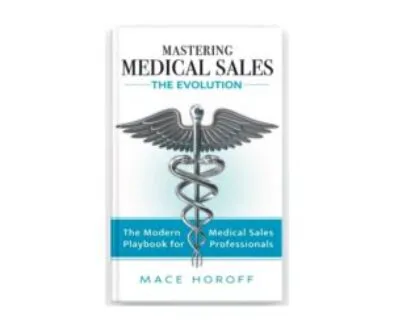The Influence of Medical Device Sales Reps is Underrated…and That’s Good!
In a recent blog about the increasing power of group purchasing organizations, blogger Brian Johnson http://bit.ly/MMEeIV refers to a poll of endovascular specialists who were asked how much their product decisions are influenced by medical device sales reps. Only 14% said that medical device sales representatives had a strong influence on their product decisions. It was also stated that “more than 85% said that it either depends on the sales rep or that sales reps had a “minimal impact” on their decision.”
The overall gist of the blog is that the influence of medical device sales representatives is declining due to the shifting decision-makers and the increasing weight of group purchasing. This is true. But I don’t have much faith in the 14% number. It is highly subjective and there are other factors to consider as well.
The poll was limited to endovascular specialists who work primarily in hospitals. Product selection in hospitals now includes decision-makers other than just the clinician, and the clinician’s product choices are often limited. A clinician whose selection is limited to only product A or product B will not feel influenced by a sales representative who sells product C.
I also want to point out that whether or not one has been influenced is a gut feeling, and one’s gut is not always accurate. Thirty years of involvement with selling to doctors has taught me that salespeople, especially great salespeople, influence a clinician’s decision more than the clinician realizes or will admit to. Let me explain.
Great salespeople are not product-pushers. They get clinicians to see their practice and clinical approach from different perspectives. Great salespeople don’t tell the customer what the problem is, but instead help the customer to identify known, as well as unrecognized problems. This allows the customer to “own” the problem and to decide how to solve it. Of course, when a salesperson positions a product that is perfectly suited to solve the clinician’s stated problem, the clinician is likely to select that product without acknowledging that he was influenced by the salesperson. Hence, the clinician believes the choice was made based on a seemingly independent assessment. And let’s be honest…few physicians will ever state publicly that they chose a product because a medical sales rep sold it to them!
Here’s where the 14% number may have merit–in my experience, less than 5% of the salespeople I have encountered have the skills to create the compelling sales conversation I just described without proper training, coaching, and practice. The majority of medical sales reps sell via the product-data-dump method. When it works, it’s due more to luck than it is to influence and in this case, they are unlikely to sell even 14%!
The numbers of medical salespeople will decline in the years ahead due to the changing product selection process, but the need for competent medical sales professionals will never go away. They will be selling to a more diverse group of buyers including clinicians. Influence will be involved, whether the customer recognizes its presence or not.
Healthcare buyers select products that they believe are right for the institution, themselves, and hopefully the patient. Great medical sales professionals influence these decisions, often without the customer realizing it. Don’t pay attention to polls that say you have no influence. If you can access decision-makers, you can influence buying decisions.
Every sales call you make delivers some level of influence, either to buy, or not to buy. It’s how you sell!



@ 2:48 am
Excellent article, I certainly agree with what is said.
I have work experience in neurosurgery and radiology, and the number of meetings that I had to go through to sell was quite numerous. Every single meeting was important, even though you might not realize it right there. Every person you meet, from top administrator of the hospital, to the IT department, to biomedical engineers, everyone is important and needs to be convinced.
The “Mighty Sales Rep” needs therefore to not just know his product and competition, he needs to understand the economics of health and why the hospital should go ahead with your product “financially-speaking”.
One though needs to keep in mind that other factors influence decision-makers: size of medical device manufacturer and the influence it has in the community.
@ 12:03 pm
Another great article. Thanks for the quality posts!